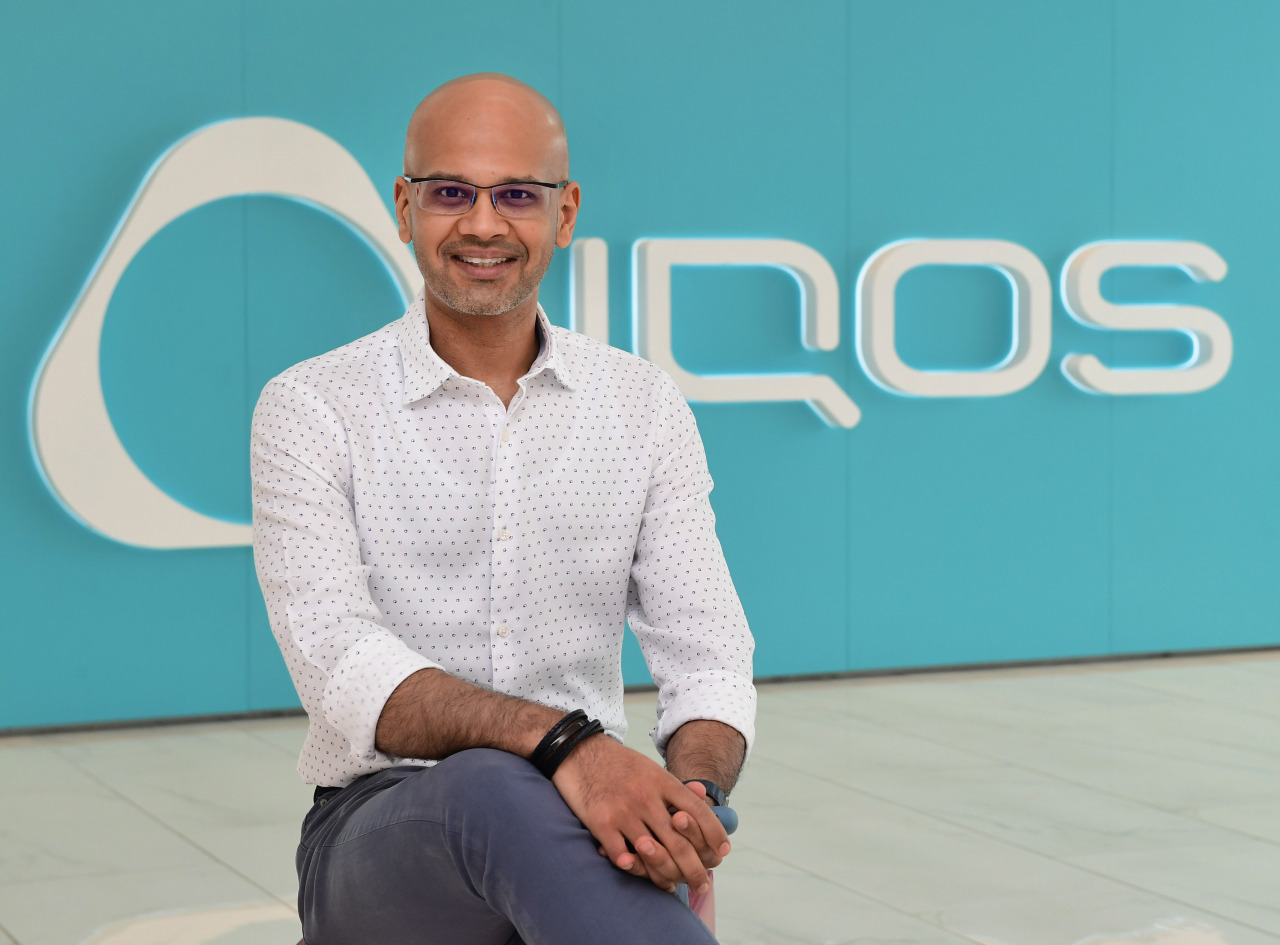 |
Khanzada Temur Khan, director of people & culture department at Philip Morris Korea, poses for a photo before an interview held at the company’s Seoul head office in Yeouido on Aug. 1. (Philip Morris Korea) |
A wind of change is blowing in South Korea’s rigid top-down workplace culture as a growing number of local companies, from fledgling startups to traditional manufacturing firms, feel the need to improve the quality of work environments in to attract and retain talent.
To name a few changes: simpler decision-making processes, no more forced overtime work until late night or and more openness to outspoken opinions.
It’s a trend that Khanzada Temur Khan, director of the people & culture department at Philip Morris Korea, has noticed for some time.
“I heard South Korean manufacturing firms have a very hierarchical corporate culture. But during my term in the South Korean branch since 2017, I hardly experienced any,” Khan told The Korea Herald in a recent interview.
“It is because the company has pushed to adopt a more open working culture, stressing it as a matter of survival.”
Khan said employees are always encouraged to challenge the status quo and voice concerns and new ideas to enhance consumer experience.
“Our No. 1 goal is to put consumers at the center of everything,” he added.
The company has also embraced an agile work structure where teams quickly respond to consumer needs and pain points.
“Communication and collaboration among teams are the key to a consumer-centric organization. Together we address and solve problems customers face (when using our product.) We have project management offices which overlook all the cross-cultural projects to understand the different types of customers within each nation,” Khan said.
Recruiting self-motivated employees is another important engine that drives innovative work culture. Philip Morris Korea has first introduced INKOMPASS, an eight-week paid internship program, which tests the candidates to solve real-time business problems. For instance, one should come up with an effective campaign method to promote the company’s ESG efforts.
“We are not looking for candidates with the highest TOEFL scores or those who just do what they are told. Rather, we need someone who brings new ideas to the table and values diversity in the workplace,” Khan said. “During the internship, candidates can start learning about their talents and development areas that they can work on.”
Around 80 percent of them continue working at the company after completing their internships. Most of them are from younger generations who play essential roles in setting horizontal workplace culture in motion.
Philip Morris Korea says it hopes these young hires will help fulfill its vision toward a “smoke-free future.” In 2017, the company announced it would gradually switch its product lines from combustible cigarettes to heated tobacco.
Its parent company, Philip Morris International, announced the slogan for the first time among global tobacco companies a year earlier. Since 2008, it has injected $9 billion into research and development and is currently generating around 30 percent of revenues from smoke-free products like heated tobaccos.
“We have become the industrial leader with iconic brands such as Marlboro. However, we decided to change course simply for our consumers. Our goal is to provide them with better alternatives to combustible cigarettes,” said Khan.
Philip Morris Korea said its directly managed stores do not recommend non-smokers to purchase even its heated tobacco products, since the best thing is not to start smoking from the first place.
Founded in 1989, Philip Morris Korea hires around 1,000 staff and executives at its Seoul headquarters, a production facility in Yangsan, South Gyeongsang Province, and sale branches nationwide. The Yangsan factory produces cigarette products including Marlboro, Parliament and Virginia S and heated tobacco products like HEETS and Iqos.
By Byun Hye-jin (
hyejin2@heraldcorp.com)







![[Today’s K-pop] Blackpink’s Jennie, Lisa invited to Coachella as solo acts](http://res.heraldm.com/phpwas/restmb_idxmake.php?idx=644&simg=/content/image/2024/11/21/20241121050099_0.jpg)
